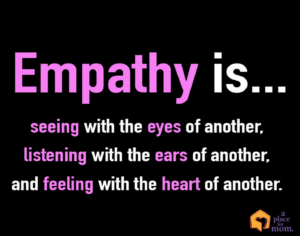 Over my years of studying the issue of abuse in churches, I have found that certain key ideas and theories have become, through my reading, much easier to understand. In the past I would not have been able to fathom or account for the dynamic which creates an impression of ‘success’ for some churches. Some of these apparently flourishing establishments have, as I shall explain, a shadow side, one that all too easily results in both the leaders and the led acting out in unhealthy ways. On the surface many of these congregations appear to have everything – large amounts of money, young people and families attending and a vibrant energy emanating from their worship. But behind this façade of success there often lurks abusive practice. The large numbers involved in some of these churches is often conducive to a situation of chronic vulnerability and danger for both leaders and led. Some of the particular dangers arise out of the dynamics of crowd psychology. When these come into play they are difficult to manage and control, even with goodwill and integrity at work on all sides. The crowd experience, wherever it occurs, is one that sometimes works in quite frightening ways. It has the ability to supress rapidly the rational processes of the individual, while at the same it gives everyone in the crowd a sensation of energy and power.
Over my years of studying the issue of abuse in churches, I have found that certain key ideas and theories have become, through my reading, much easier to understand. In the past I would not have been able to fathom or account for the dynamic which creates an impression of ‘success’ for some churches. Some of these apparently flourishing establishments have, as I shall explain, a shadow side, one that all too easily results in both the leaders and the led acting out in unhealthy ways. On the surface many of these congregations appear to have everything – large amounts of money, young people and families attending and a vibrant energy emanating from their worship. But behind this façade of success there often lurks abusive practice. The large numbers involved in some of these churches is often conducive to a situation of chronic vulnerability and danger for both leaders and led. Some of the particular dangers arise out of the dynamics of crowd psychology. When these come into play they are difficult to manage and control, even with goodwill and integrity at work on all sides. The crowd experience, wherever it occurs, is one that sometimes works in quite frightening ways. It has the ability to supress rapidly the rational processes of the individual, while at the same it gives everyone in the crowd a sensation of energy and power.
I invite my reader to reflect back to a time when they were part of a large gathering which was involved in a common purpose. It could have been a football match or even attendance at a concert. Without any action on our part, our consciousness slips into becoming part of the crowd mind. Our thoughts and feelings are, in a sense, taken over. This is not an unpleasant or particularly harmful experience. Nevertheless, the irrationality that sometimes takes over when we are in a large crowd indicates to us clearly that independent thinking is not best conducted in that particular setting. I have read a few of the many studies into the irrationality of crowds, whether they be political rallies or lynch mobs. All these studies draw attention to the way the crowd mind takes on a life of its own. It is as though thinking, feeling and decision making are done by the entire crowd and the individual finds it almost impossible to resist this dynamic and stand outside it.
For most of us the irrational crowd experience is fairly frightening, though it can also be for a short time exhilarating. Any exhilaration that we do experience comes to us from the sense of power that every member of a crowd finds they participate in. In a political context this crowd power can unleash societal changes which have been historically significant on some occasions. But while the individuals within a crowd may find themselves energised by this participation, a greater power is given to the leader, the one who orchestrates these power dynamics through the tools of speech and rhetoric. Through history political demagogues, like Hitler or Lenin, have exploited this power of the crowd with effect. They have been able to promote their ideologies whether left or right wing through certain well studied techniques. It is possible to train to be a Mussolini, a Hitler or leader of a successful cult or church.
It is of course not just the members of a crowd who experience an inrush of energy when they are part of a large event. The leader, or we might say, compere of the event also experiences a gratifying, even intoxicating sense of importance and power. The power and energy of the crowd that the leader has helped to bring into being is in some way is mirrored back to the crowd’s conductor. This front-man in some strange way absorbs much of the crowd energy into himself. He is a kind of representative; he embodies the crowd and he becomes the crowd. At the same time every member of the crowd may feel him or herself merged into the speaker in some way.
Previous blog posts have tried to describe the narcissistic processes which have the effect of pumping up the morale of the speaker or leader in a charismatic church. This boosting is a kind of psychological feeding of the psyche which needs this kind of attention after it suffered damage at some point in early childhood. We spoke in an earlier blog of an insatiable hunger for adulation on the part of the leader and in serious cases it can only be described as an addiction. The typical narcissistic leader will use his skill at crowd manipulation to draw attention on himself to feed his massive and unending hunger for affirmation by others. The psychological historians who have looked the life of Hitler claim that the vast rallies of Nazi power can be understood as, at one level, an attempt to relieve a massive sense of inferiority on the part of Hitler. By standing up in front of tens of thousands of his supporters, the symptoms of his depressive illness were lifted. What we are claiming is simply that being at centre of attention in front of a large crowd is not only enjoyable, but it may also be able to relieve mental distress; in short it is a form of self-therapy. It is likely that whenever a leader, politician or Christian minister becomes addicted to this kind of activity, that they are probably sufferers from a narcissistic disorder. While we cannot ascribe this suggested interpretation to include every Christian speaker or minister who stands up in front of large groups, clearly this kind of situation is an ever present danger. Narcissism and an addiction to manipulating (abusing) crowds of followers will always be an issue to be watched in every church within this culture.
For reasons of space I have to compress my ideas and state here that the needs of a congregation sometimes are very similar to those of the leader. A narcissistic leader will, in other words, create narcissistic followers. Each will seek to achieve a ‘fix’ through the energy that is generated in the crowd dynamic. This dynamic will promote a sense of unity and artificial goodwill, particularly if it is boosted by the use of music and singing. The music that is typically blasted out at charismatic meetings will, like the crowd dynamic itself, do little to promote clear rational thought. The message that is given out by the preacher will normally be reassuring and fuzzy. As long as everyone gives of their money, the individual is told that he or she is safe, free from the effects of the past and able with confidence to look forward to the future, a future ultimately with God.
Many services in Christian churches today in Britain, America and no doubt elsewhere conform to these dynamics and structures. A critical analysis may reveal that such acts of worship are often conducted as a way of meeting psychological needs of the leaders as well as the led, rather than proclaiming a challenging Gospel truth. I have to question whether a narcissistic Christian leader can avoid doing immense damage to the vulnerable members of his flock when he has so little insight into his own psychological profile and the dangerous processes that are potentially present in a crowd situation. There are far too many uncomfortable parallels between large political rallies from the 1930s and Christian gatherings that take place for the purposes of evangelism. Because many people lead isolated and lonely lives there is always a great hunger for crowd events which will allow the individual to be subsumed and swallowed up into a large group with a charismatic leader. No one would suggest that such a longing is in itself unhealthy or pathological. I just find it difficult to justify the way that some Christian groups and their leaders knowingly exploit this common vulnerability of many people in our society. The needs of such people will be complex and various. I fail to see, and Chris is constantly reminding me of this, how what is offered in a typical charismatic service can ever do very much to meet their real needs. The ecstasy of being in a crowd together with words of platitude will do little to resolve the kinds of problems that such people are facing. These will, along with everyone else, centre around relationships, money problems and stress. What is needed to help with these has to be something far more substantial than the fluffiness of charismatic religion.








